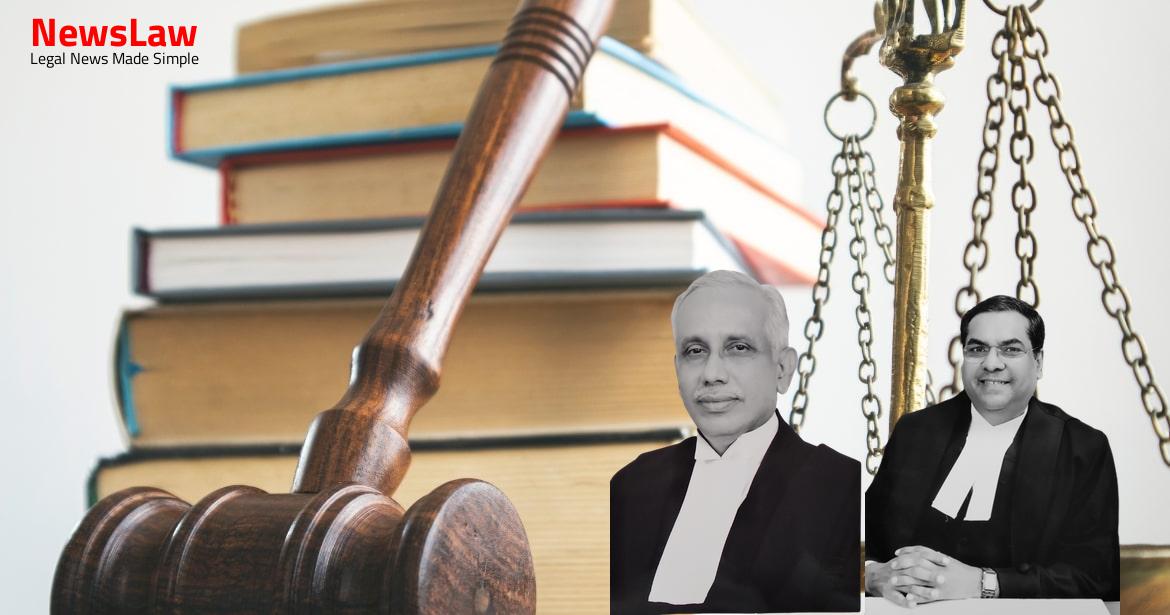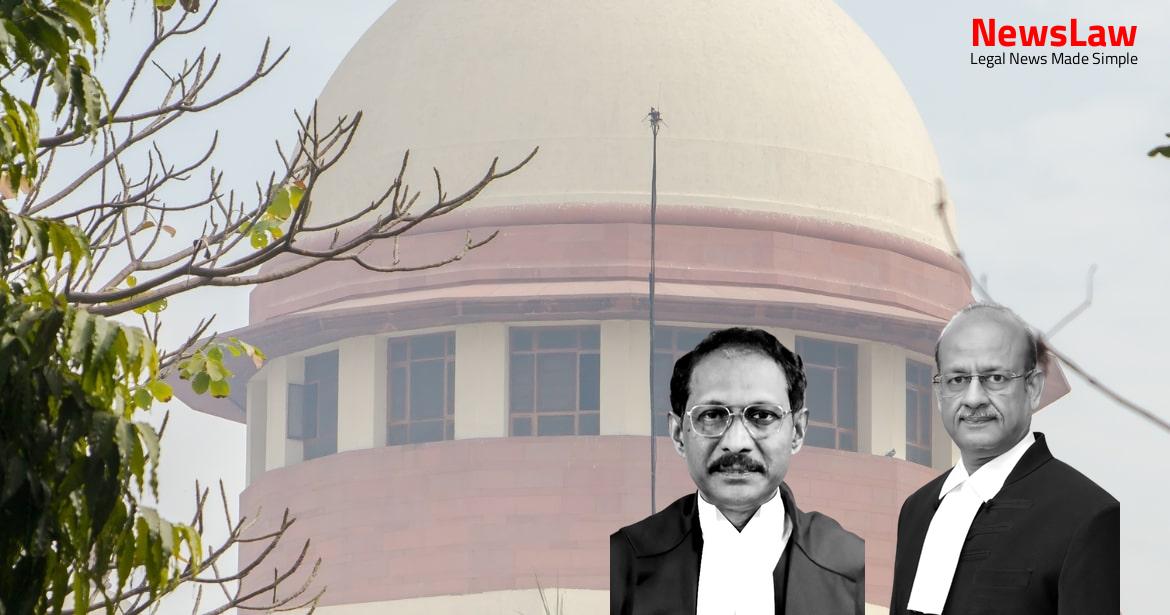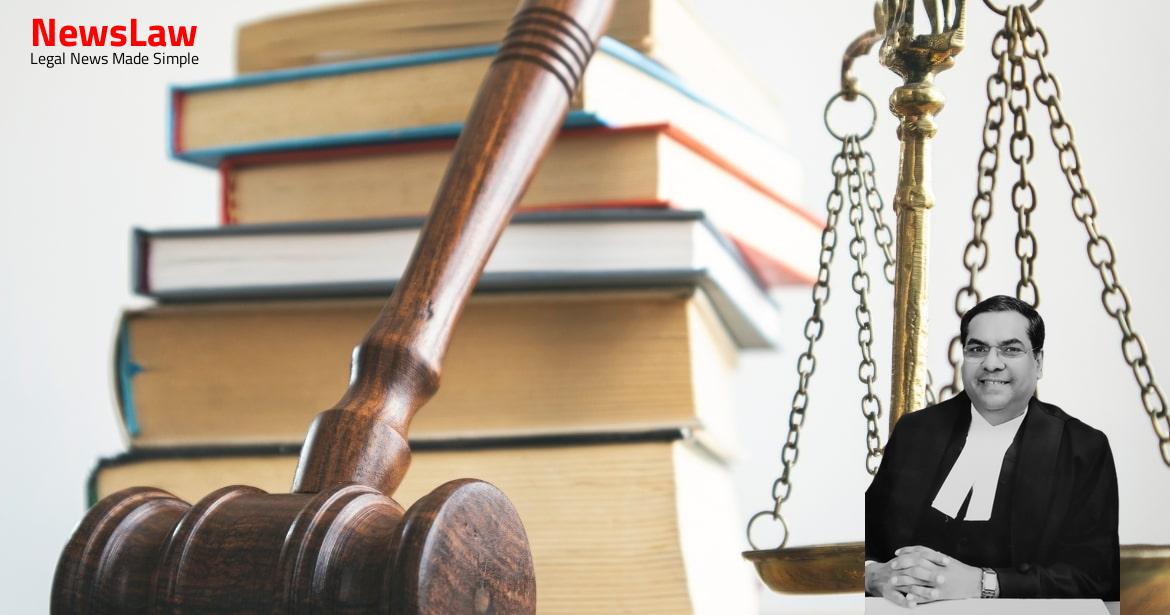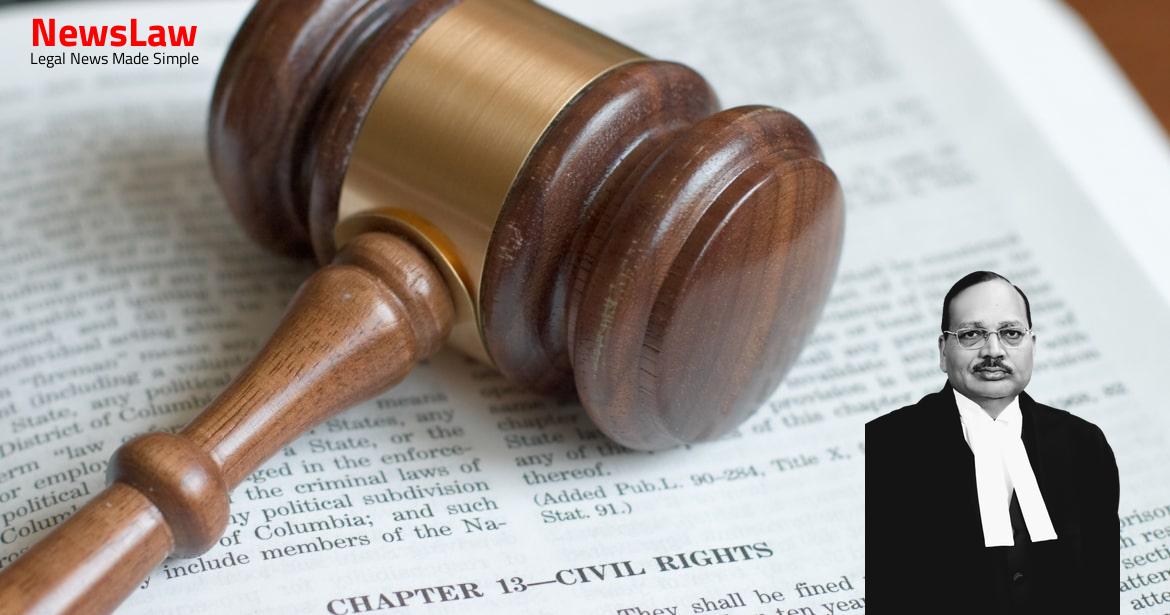Explore the detailed legal analysis conducted by the court in a case concerning damages and rent liability in a dispute over business premises. The court carefully examined the terms of the agreements between the parties, determining the extent of damages and rent obligations. This case sheds light on the complexities of legal interpretations in commercial disputes and the nuances of rent liability in such scenarios.
Facts
- The appellants operated a restaurant cum sweets shop at the respondents’ premises under license agreements.
- Dispute arose between the parties regarding electricity connections and smooth operation of the business.
- Arbitration proceedings were initiated, and the arbitrator framed 16 issues for consideration.
- The business was stopped in February 1991 due to non-payment by the appellants and resumed in November 1995.
- The respondents filed a suit due to non-payment of commission and failure to hand over vacant possession.
- Inadvertent errors in financial statements and disputes over deductions in commission were raised.
- The arbitrator’s award was challenged before the High Court by the appellants.
- Various issues regarding payment, electricity supply, and business operations were raised in the arbitration proceedings.
- The Division Bench of the High Court confirmed the judgment of the learned Single Judge.
- A reduction in the rate of interest applicable to post-award interest was allowed.
- Learned counsel for the parties were heard.
- The plea was dealt with, and the learned Single Judge upheld the award of damages by the Learned Arbitrator.
Also Read: Ensuring Fairness: Court’s Discretion in Document Production
Issue
- Learned Arbitrator framed an additional issue No.15-A regarding the entitlement of claimants to damages.
- After arguments, respondents filed a statement of account for calculating commission payable to appellants after business restart.
- The statement was not objected to and used by Learned Arbitrator to calculate damages for period when business was closed but appellants retained possession of respondents’ premises.
Also Read: Legal Battle Over Elephant Corridors
Arguments
- Appellants filed a statement and paid taxes on the commission due.
- Learned Arbitrator rejected appellants’ plea of business closure due to respondent’s obstructionist tactics.
- Learned Arbitrator concluded that appellants are liable to pay damages.
- Court found appellants liable to pay damages for use and occupation of premises during business closure.
- Disputes arose between parties regarding possession of premises.
- Appellants failed to hand over possession of premises until arbitration proceedings.
- Arbitrator framed issue regarding damages payable to respondents.
- Appellants argued transaction was a tenancy, not a license.
- The Arbitrator was not justified in declaring the Agreements as Licence Agreements and awarding damages based on commission paid before the closure of the premises before March 1991 and after re-starting of the business after 1995.
- The appellants were argued to not be liable to pay damages or rent as per the Agreements.
- The Agreements did not include any clause for damages, therefore the awarding of damages was not justified.
- Expenses incurred on electricity and water were deducted from the sales instead of deducting them from the commission of the respondents.
- The parties only agreed to pay commission on the gross sales, and there was no clause for payment of damages for the use and occupation of the premises.
- The contention that the expenses incurred towards the generator should have been deducted from the gross commission payable and not from the gross sale amount was dismissed by the learned Single Judge.
- The errors in the statement of accounts submitted by the appellants were deemed as inadvertent, and there were no mistakes in the statement of accounts as per the learned counsel for the respondents.
Also Read: Ensuring Procedural Justice: Blacklisting in Government Tenders
Analysis
- The payment of damages for the closure period from March 1991 to October 1995 was determined by averaging the commission paid pre-closure and commission payable post-closure after deducting TDS.
- Appellants claimed the deduction was wrong, arguing they were only liable to pay commission at 6% and 5% based on two agreements.
- It was noted that the appellants were responsible for providing electricity, and the premises were without electricity on reopening.
- Expenses for electricity and diesel generator set were to be borne by the appellants.
- The quantum of damages was calculated based on the appellants’ audited accounts and statement of accounts, with TDS deductions, for the pre-closure period of 15.08.1990 to 22.02.1991 and post-closure period of November 1995 to November 1997.
- Respondents asserted that the transaction was a tenancy, not a license.
- The learned Single Judge found no error in the determination of damages and the deductions made for TDS.
- Respondents considered themselves tenants at rent equivalent to commission @ 11% per month
- Under Section 108 of the Transfer of Property Act, respondents remained liable for rent payment
- Even if not carrying on business in the premises, liability for rent remained
- Division Bench held in State Bank of Patiala v. Chandermohan that tenant is liable for rent even if premises are destroyed
- Tenant’s only option to stop rent is to surrender the premises
- Appellants cannot withdraw their statement made before the Learned Arbitrator which was based on an accepted mode of calculation.
- Appellants are not justified in raising a contrary plea different from their defense and counterclaim in arbitral proceedings.
- Learned Arbitrator rightly relied on appellants’ statement of accounts for awarding commission for a specific period.
- The formula used by the Learned Arbitrator for determining commission and damages was accepted by the Single Judge and Division Bench of the High Court.
Decision
- The Division Bench of the High Court reduced the rate of interest from 16% to 9% per annum from the date of the Award till the date of its judgment.
- The appellants must pay the decretal amount to the respondents by 30.06.2010 to avail of the reduced interest rate.
- The rate of interest is similarly reduced from 16% to 9% per annum from the date of the Award till the current date.
- The appellants are required to pay the complete decretal amount to the respondents by 31.12.2020.
- If the decretal amount is not paid by the specified date, the original Award along with interest will remain in effect.
- The judgement was delivered by Justices N.V. Ramana, S. Abdul Nazeer, and Surya Kant on October 01, 2020.
- No costs have been awarded in this case.
Case Title: M/S ARUN KUMAR KAMAL KUMAR . Vs. M/S SELECTED MARBLE HOME . (2020 INSC 571)
Case Number: C.A. No.-008980-008980 / 2017



